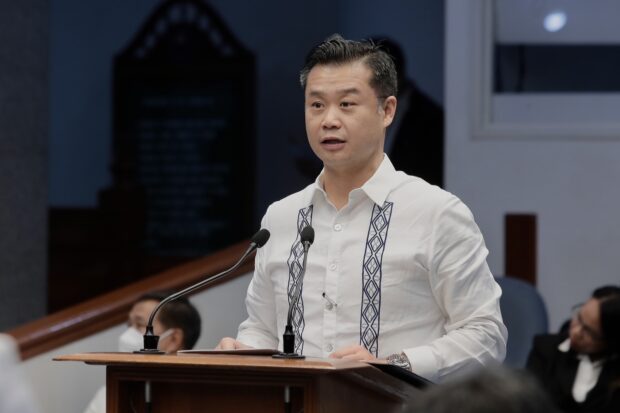DepEd has lots of data but still needs help to gauge ‘learning loss’

Sen. Win Gatchalian—Senate PRIB
The education department has yet to come up with a system to analyze “learning losses” incurred by public school students nationwide despite the mountain of data at its disposal, officials said on Thursday, admitting they needed help from experts and the private sector.
During the meeting of the Second Congressional Commission on Education (Edcom II), Sen. Sherwin Gatchalian urged the Department of Education (DepEd) to “develop its own capability” in examining the extent of learning losses in the basic education sector from its huge trove of data of more than 28 million students.
Learning loss refers to reversals in students’ academic progress due to gaps in their education, as happened during the pandemic-induced school closures from 2020 to 2022.
Gatchalian, cochair of Edcom II, acknowledged that granular data from the municipalities and divisions were equally important but “what I need from the [DepEd] is a national consolidated data and an analysis of that.”
“Because from my point of view, when we allocate the budget, we need to justify that budget and we also need to look at the big picture,” he said.
Education Undersecretary Gina Gonong said the DepEd was planning to seek help from experts and partner organizations in analyzing the nationwide data available to the department.
Stakeholders forum
“In terms of sharing data with stakeholders, we have committed that in the Basic Education Report. We really cannot analyze the large amount of data of DepEd,” she said, adding that the agency would hold a stakeholders forum in July to share relevant information with interested parties.
“We’re going to conduct a stakeholders forum for us to share with you our data and we’ll tell you the things that we need and the things that need to be analyzed,” Gonong said.
DepEd officials said they requested all of their regional offices to perform their own assessments of students because there was no available national assessment before the opening of classes.
“We were not able to conduct the National Achievement Test (NAT), the last NAT we administered was in 2019,” said Assistant Education Secretary Alma Ruby Torio, noting that despite the lack of evaluation, teachers were still able to conduct “rapid assessment” for the school year.
Based on the initial findings of the DepEd’s assessment of learning losses on 21st-century skills during the pandemic, Torio said Grade 6 students showed a “significant learning loss” in problem-solving and critical thinking except in information literacy.
In her presentation during the Edcom meeting, the DepEd officer did not quantify the initial results, which were based on the 2018 or prepandemic data of the department compared to the 2022 data.
Bicol outlier
“For sample Grade 10 learners, a significant gain in the average scores is observed from 2018 to 2022 in critical thinking. However, there is no significant difference in the average scores that were found in problem-solving and information literacy between 2018 and 2022 for Grade 10,” Torio said.
In Bicol Region, the DepEd was able to capture a clear picture of its early-grade learners experiencing difficulty in reading through a standardized literacy tool developed by its regional office with the support of the United States Agency for International Development’s ABC+ project.
“When we assessed our 406,914 Grades 1 to 3 learners at the beginning of SY 2021-2022, the results compelled us to seriously think about what lies ahead for our most vulnerable learners as we transition back to in-person classes,” Gilbert Sadsad, DepEd Bicol regional director, said at the meeting.
Based on their analysis, 50.9 percent of the students still needed full refreshers while only 27.11 percent were “ready” to be in their grade level.
“Those that needed moderate refresher were pegged at 8.85 percent and those needing light refresher were 13.12 percent,” he said.
To address learning losses incurred before and during the pandemic, the DepEd had developed its National Learning Recovery Program with different interventions in reading, mathematics, and science and technology, as well as “learning camps.”
The learning camp is a two-fold program that involves three activities—enrichment, intervention or remediation. Its target launch is at the end of the school-year break.